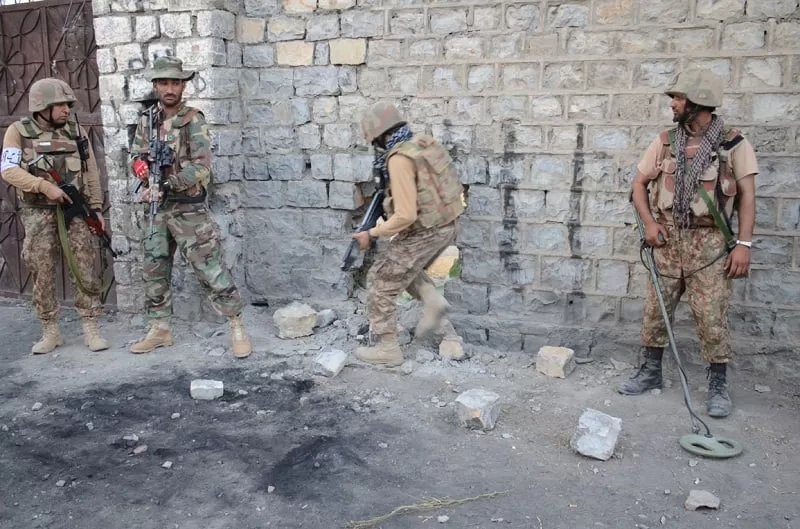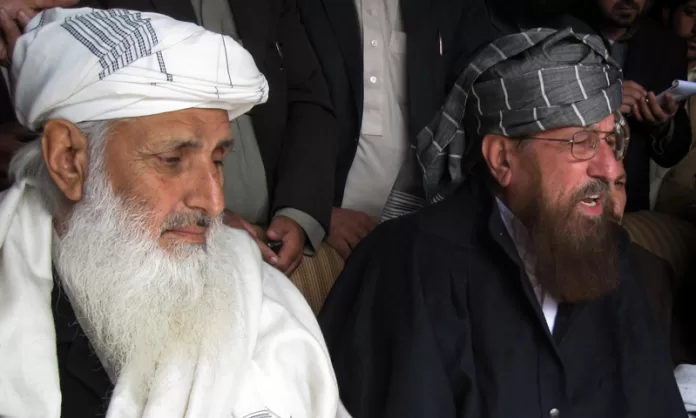Dear Readers,
Now that the government has formed a new Committee for holding talks with the Tehreek-e-Taliban (TTP), will peace prevail again in Pakistan? If one is to look back there is very little chance of that actually happening and here one is reminded of Albert Einstein’s famous quote, “Insanity is doing the something over and over again and expecting different results”.
There is widespread thinking that the TTP’s announcement of unconditional ceasefire for a month is aimed at lulling the government into a false sense of security and that the TTP will use this as a ploy to regroup and recommence attacks when they grow stronger. As has been seen many times, they need very little excuse to go on a killing spree. Thus, the government must not shrug off the apprehensions being voiced in many quarters and must remain extremely vigilant and ready to deliver a swift and lethal blow should the TTP renege on their word. How can a group of terrorists that has killed and maimed thousands of innocent people and destroyed scores of mosques, hujras, etc be even trusted to keep their end of the bargain? Let us not forget the very basic fact that the TTP’s vision is against the Constitution of Pakistan – this in itself should have been reason enough to not agree to negotiations. This group does not believe in democracy, it demands the withdrawal of the army from tribal areas, it wants to impose its own brand of Islam and hos a host of other extremely unreasonable demands; the bottom line is that its slated agenda is anti-Stole in every possible way.
By agreeing to hold negotiations we ore in essence rewording their behaviour with the legitimacy that comes with these negotiations? Does this also not send a message to other militant/extremist groups that all they have to do to achieve their goal is to kill and destroy want only? For the benefit of readers I am reproducing my article “BLOWBACK MOUNTAIN”.
The major problem facing this country is the vacillation of the government in dealing decisively with terrorists because (1) fear of blowback in the urban areas if there is any major counter-insurgency operation in the mountains and (2) some terrorists groups in Punjab have loose links with influential political elements. They not only fear their presence in their constituencies but depend upon them for their electability. Both assumptions are only partially correct. Terrorist sleeper cells in the urban areas can cause both human and material damage. With the counter-insurgency operations being successful, this capacity has diminished considerably and will be further depleted when our troops go into North Waziristan. While blowback is a distinct possibility, the extent of collateral damage will not be in keeping with the claim of the TTP. This canard is only force-multiplied in the public mind by their supporters and apologists who have good media access. No civilised society can allow such abhorrent people, who foment anarchy just to create sensation and increase their coverage in the media.
The TTP is keen for a ceasefire now because it has suffered considerable damage by the PAF’s precision hits, not only in North Waziristan but in Mohmand and other adjacent districts as well. The TTP’s rank and file do not possess equipment for snow warfare. While they can operate for a short time above the snow line, it is impossible for them to maintain hideouts in the snowy heights. Until the snow melts in late April, the TTP will have to find hideouts in the valleys. There is a “window of opportunity” here where the militants are vulnerable to both air and ground interdiction. During spring and summer, they have numerous hiding places in the mountains to operate from. To compound their problems the precise nature of the attacks has unveiled two important facts: (1) the TTP has been infiltrated across the board by ISI operatives and (2) these operatives had the capacity to pass on information as ‘actionable intelligence’. The TTP, therefore, desperately needs time to regroup. There is no surety that in the valleys it will not again be hit by the PAF, or more likely face a ground offensive by the Pakistan Army. While on the surface its spokesmen, and those helping it, maintain their charade of bravado, the TTP has been sending desperate signals through back channels seeking a temporary ceasefire. This has also been conveyed through intermediaries among the tribals who are not actively engaged against the government.
Contrary to the perception given to the public, but now expressed by the TTP’s inability to rein in its recalcitrant elements, both within its ranks and those that give it lip-service mandate, there is active infighting going on between some TTP factions. They vehemently disagree with each other about the conduct of the future war against the state in attempting to overthrow the present system of government and replace it with their model of a Shariah-complaint one. Fazlullah has only lip-service dominance over the TTP; the Mehsuds mostly hate him. Moreover the displaced tribals that are not part of the TTP, particularly the Mehsuds, are aggrieved over being deprived of hearth and home. For the tribals it is not honourable to leave their homes and seek refuge elsewhere. Reports indicate they have been pressurising the militants to seek accommodation with the state so that they can return to their own tribal areas.

While the Afghan Taliban do not engage in or encourage any activity against Pakistan, they have an alliance of sorts with the TTP, mainly for the sake of convenience. The areas occupied by the TTP along the borders gives them depth and sanctuary. Because of the army’s successful CI operations, they feel the effect because their sanctuaries and bases are being denied to them. For them to maintain these in Pakistan has been a dire necessity. Moreover, most religious militant groups in Pakistan send their fresh recruits for a few weeks into Afghanistan to gain battlefield experience. This manpower induction, even for a short time, is invaluable support for the Afghan Taliban. These battle-trained, if not battle-hardened, TTP personnel return to their various original militant outfits. The Afghan Taliban are pressing the TTP to somehow keep the peace with the Pakistan Army till the end of the year when they expect most (and maybe all) the coalition troops to leave.
The government must get its act together. More importantly, it must capitalise on the partial awakening of Imran Khan in Khyber Pakhtunkhwa. The PTI leader recognises now that there are TTP factions that will never stop acting against the state and society, and is now advocating a selective approach, targeting only those who show no inclination for peace. The misplaced perception in the mindset of the PTI rank and file that the TTP really wants peace has evaporated. However, some heavyweights in Imran’s media cell remain unguided missiles, causing him and the party damage.
The Army and the ISI are on the same page. One major misperception being spread by TTP militants and enthusiastically espoused by some in the media is that there is a divide between the army and the ISI. This is sheer nonsense. The army has made huge sacrifices in the battlefield in a tremendous officer to men ratio (1:10-11). Will those officers, some of whom who have done a stint in the ISI, support the Jihadis inflicting great casualties among their own brethren engaged in CI operations? While the army is engaged in CI operations, the government could possibly give ISI the mandate, along with the legal cover it would need, to conduct counterterrorism (CT) operations in the urban areas. This they can do today with only limited budgeting support in contrast with the long lead time needed to activate Nacta and a rapid response force (RRF).
Why is the government set on a course of seeking appeasement when the cacophony of pleas it is getting from backchannels confirms that the TTP is hurting badly, and has nowhere to go for the present and immediate future. One must leave room for negotiations, this can be overt and/or covert. However, it is simplistic to suggest, and in the case of the TTP and their perverted and motivated supporters in society, particularly in the media, that you cannot both fight and talk at the same time. Talking can take precedence over action and sometimes fighting can come over negotiations, but one can both talk and fight. In the present circumstances where the opposition forces are not united and those that claim to represent them have only limited mandate for those engaged in terrorism (and pure criminal conduct) against the state, it is ridiculous to suggest a ceasefire when the other side knows very well that it cannot neither rein in nor restrain its disparate elements. And certainly not those giving it nominal lip-service mandate at best, or none at worst.
One cannot ignore terrorism for the sake of those with a perverted mindset, fighting it is the government’s responsibility and should be its priority. One clear unambiguous message for our present rulers: ‘blowback’ is a mountain you have to Climb.




